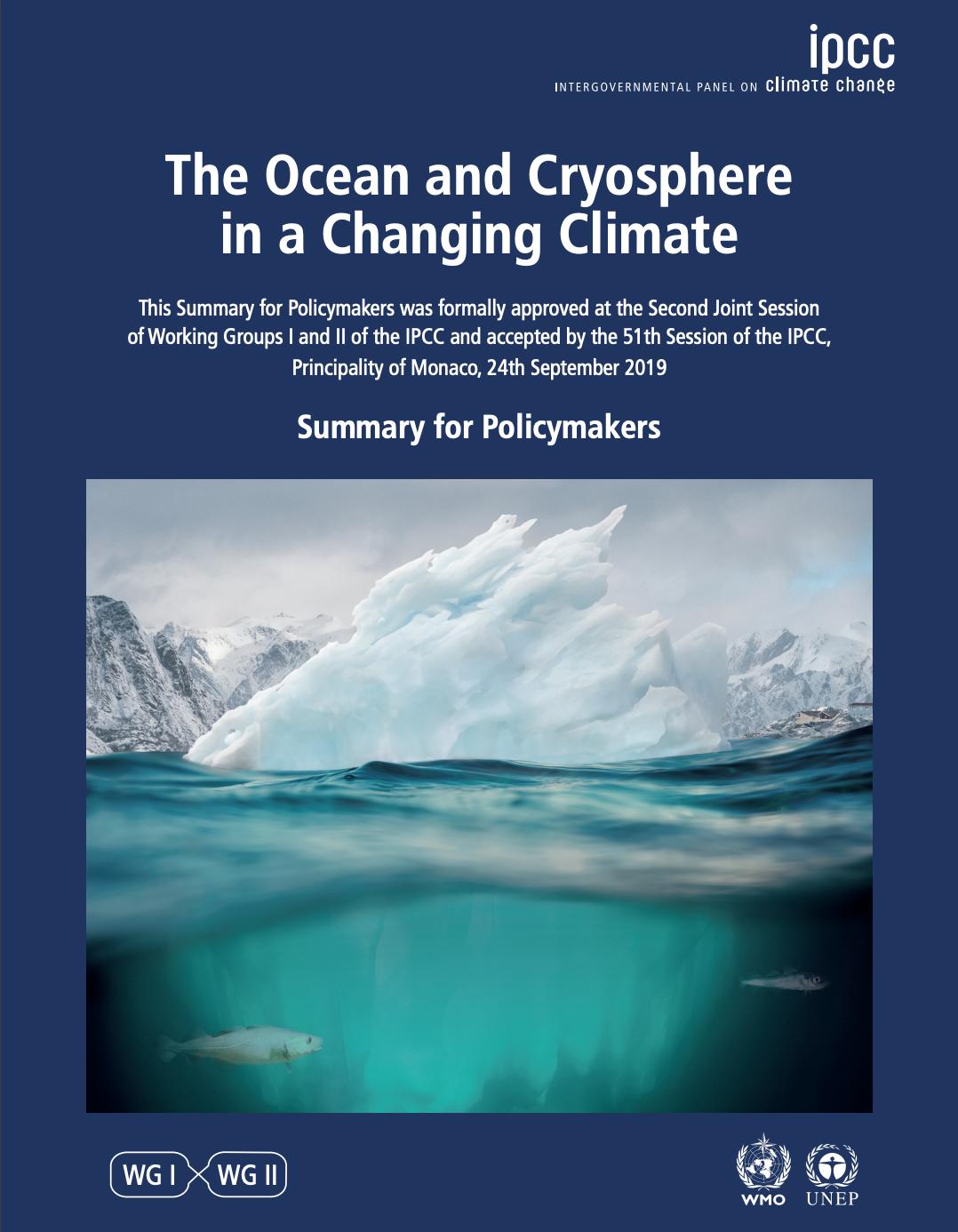The Ocean and Cryosphere in a Changing Climate

The Intergovernmental Panel on Climate Change (IPCC) launched the “Special Report on the Ocean and Cryosphere in a Changing Climate” (SROCC) to highlight the urgency of prioritizing timely, ambitious, and coordinated action to address unprecedented and enduring changes in the ocean and cryosphere.
The report, presented on September 2019 in Monaco, reveals that the ocean and the cryosphere – the frozen parts of the planet – play a critical role in life on Earth. A total of 670 million people in high mountain regions and 680 million people in low-lying coastal zones depend directly on these systems. Four million people live permanently in the Arctic region, and small island developing states are home to 65 million people.
Download the full report or access to more informational material available in the report webpage.
For further details, watch the press conference and the press release.
